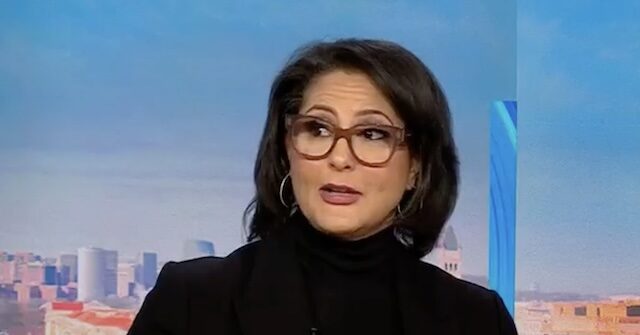In a recent discussion on “This Morning,” CNN contributor Karen Finney expressed her views regarding President-elect Donald Trump’s behavior toward young individuals, particularly in the context of accusations he made against former Representative Liz Cheney about witness tampering. Finney characterized Trump as an “old man” who poses a threat to younger women, specifically referencing Cassidy Hutchinson, a young whistleblower who testified before Congress regarding the events surrounding the Capitol insurrection. Finney’s comments shine a light on the perceived power dynamics at play in political discourse, particularly how authorities may seek to intimidate those who take a stand to reveal the truth.
Finney argued that the discussion surrounding clemency and reform must expand beyond the current focus. She called for President Biden to initiate a broad-based clemency program, specifically targeting nonviolent offenders who have been adversely affected by strict penal policies. This initiative should not only encompass those serving time for minor offenses, but also those on death row who were ensnared by previous legislation that Biden himself had a hand in shaping. Finney believes a more comprehensive approach would promote criminal justice reform that acknowledges past mismanagement while also serving to help those in dire situations.
The crux of Finney’s argument stems from a larger concern regarding the safety and security of individuals who come forward with truthful accounts of wrongdoing. She emphasized that Cassidy Hutchinson’s willingness to testify reflects a civic duty that should be encouraged rather than punished. Finney’s condemnation of Trump’s actions highlights how such intimidation can silence courageous individuals and hinder transparency in government. It reflects a broader sentiment that those in power should not leverage their positions to intimidate or retaliate against whistleblowers.
Finney articulated a sense of urgency in reframing the discussion about protective pardons, noting that the notion is not currently being addressed adequately. She invoked a protective stance for individuals like Hutchinson, implying that without institutional support, these young citizens could easily become victims of vindictive political maneuvers. The implications of this are significant, especially as the political landscape continues to be fraught with accusations and counteraccusations that can often lead to a chilling effect on free expression and accountability.
Furthermore, the exchanges during the segment underscore the unique challenges women, particularly young ones, face in political spheres that are often dominated by older authority figures. Finney’s comments resonate with those advocating for equality and justice, as they highlight systemic issues of power and intimidation within political contexts. Her defense of Hutchinson serves not only to affirm the importance of her testimony but also to call attention to the potential repercussions for individuals who dare to speak out against powerful figures in government.
In conclusion, Finney’s comments on “This Morning” encapsulate a powerful critique of how authority figures like Trump can threaten and intimidate young women engaging in civic duties. By advocating for a comprehensive clemency program and underscoring the need for protective measures for whistleblowers, she brings attention to critical issues surrounding justice and accountability in the current political landscape. Her statements serve as a reminder that the individual’s safety and the integrity of democratic processes must be fiercely protected against any forms of political repression.

